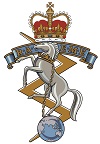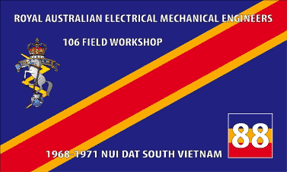1971
Rough Justice
John Sinclair
The Unit was quite involved with Civil Affairs programs. The main activity related to working with primary schools in the Province. I found hardly any time for this responsibility and left it in the capable hands of Newton Ellaby, the Quartermaster, with only an occasional (very occasional I'm sorry to say) look over his shoulder.
To my memory, I was involved only on two occasions; one of those was to attend a thank-you lunch with the staff of a school that the Unit had helped a lot; on the other, I accompanied Newton to a village who had asked for help to refurbish school equipment and it is about this I would like to tell a little story.
The village was a fishing village. It was a community of Roman Catholics, who had fled to Phouc Tui Province from an area in the South of the Communist North Vietnam. They were relatively prosperous with an attractive church and were led by a capable priest and headman. They were also utterly opposed to the Communists and the Viet Cong, although they could hardly be said to support the Government of the Republic of South Vietnam being generally suspicious of outsiders, self reliant and fiercely independant.
Driving carefully, it took over half an hour, through Dat Do, skirting the Long Hais to the coast, passing on the way a group of deserted resort villas, sitting battle-scarred, blackened and violated, on a ridge overlooking the South China Sea.
The village, when we reached it, was one street sloping steeply to the sea and with buildings on both sides. It was very neat and clean but hardly a person was to be seen; in fact it looked deserted. Neither was it welcoming. In spite of it being broad daylight I was uneasy; it felt wrong. I was glad we had come reasonably well armed. Even so we did a comms check and reported our location and the situation we had found. I was in two minds as to whether to stay or to get out of there straight away.
We had stopped in front of the Church, half way down the road, when we saw further down and approaching, a stark naked teenaged boy with his arms bound tightly behind him and then to his upper body with padlocked dog chain. He had a rough cardboard sign around his neck. He was stumbling up the road, distraught and apparently disoriented.
A black cassocked priest came out of the church towards us. It was his school that we had come to see but he seemed not all that pleased to see us.
He told us that the sign said, "Do not succour this Viet Cong dog" and was signed by the Headman. The boy had run away and spent some days with a Viet Cong cadre that had recruited him. He had been re-captured two nights ago when he had come to the edge of the village in an attempt to contact his family.
When asked what might happen to the boy, the priest told us that, basically, it was none of our business (but with Vietnamese politeness of course).
When things steadied down a bit, the priest went on to explain that the reason why the village was so quiet was that it was in mourning. The headman had had four sons, three of whom had been killed, over a number of years, by the local Viet Cong. The last son had been caught and killed the previous night.

